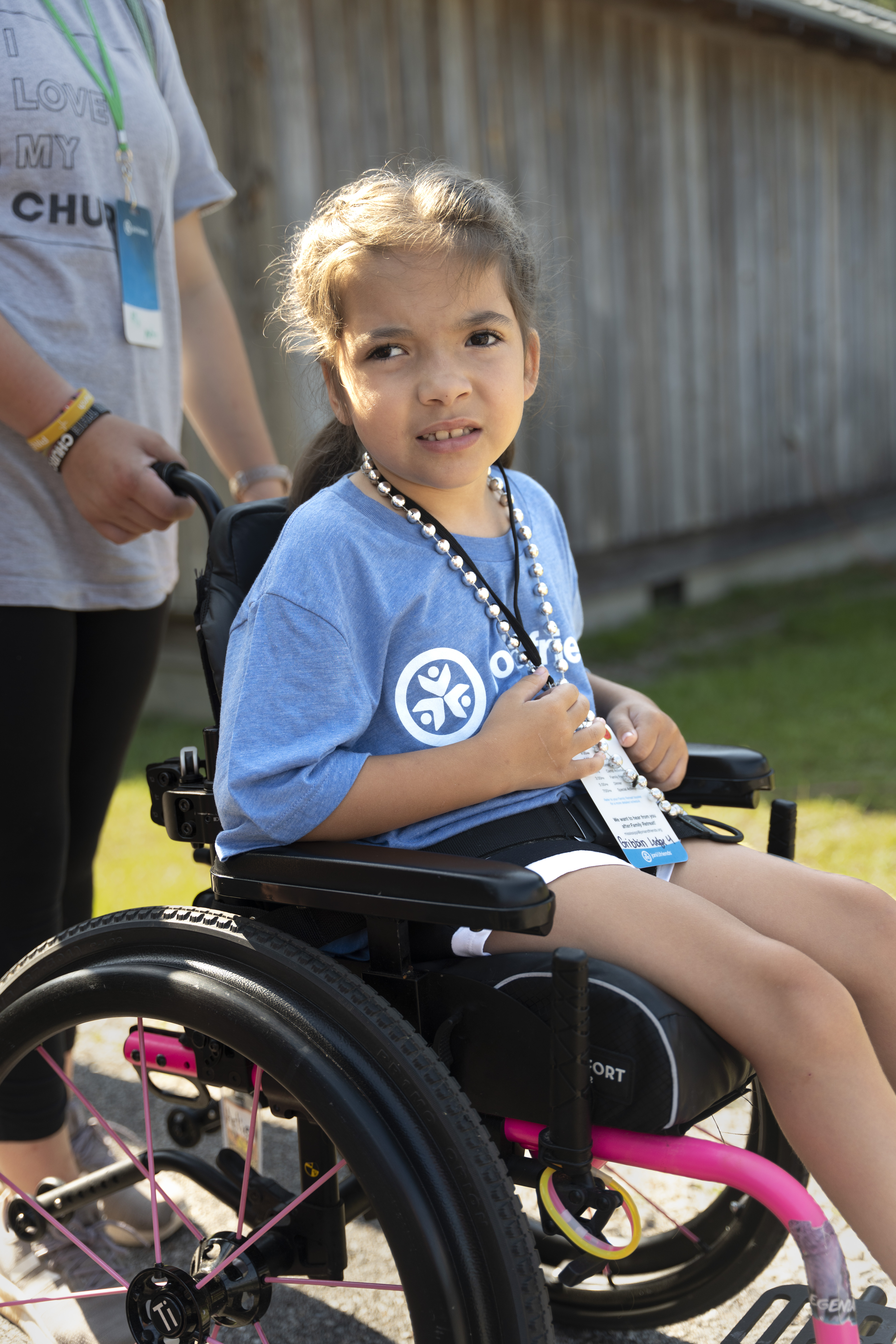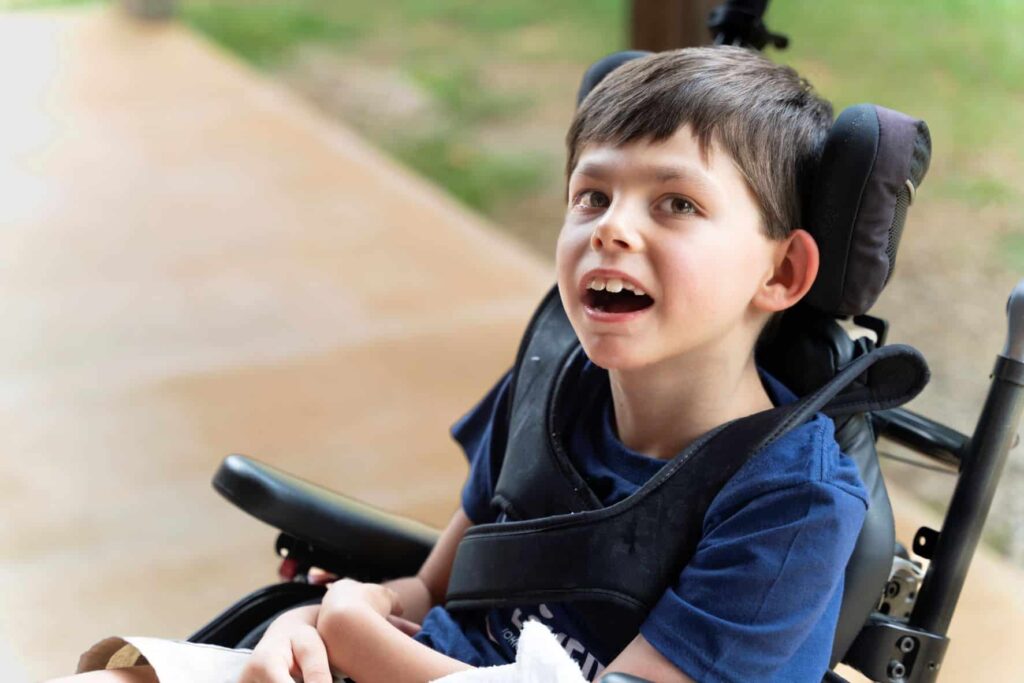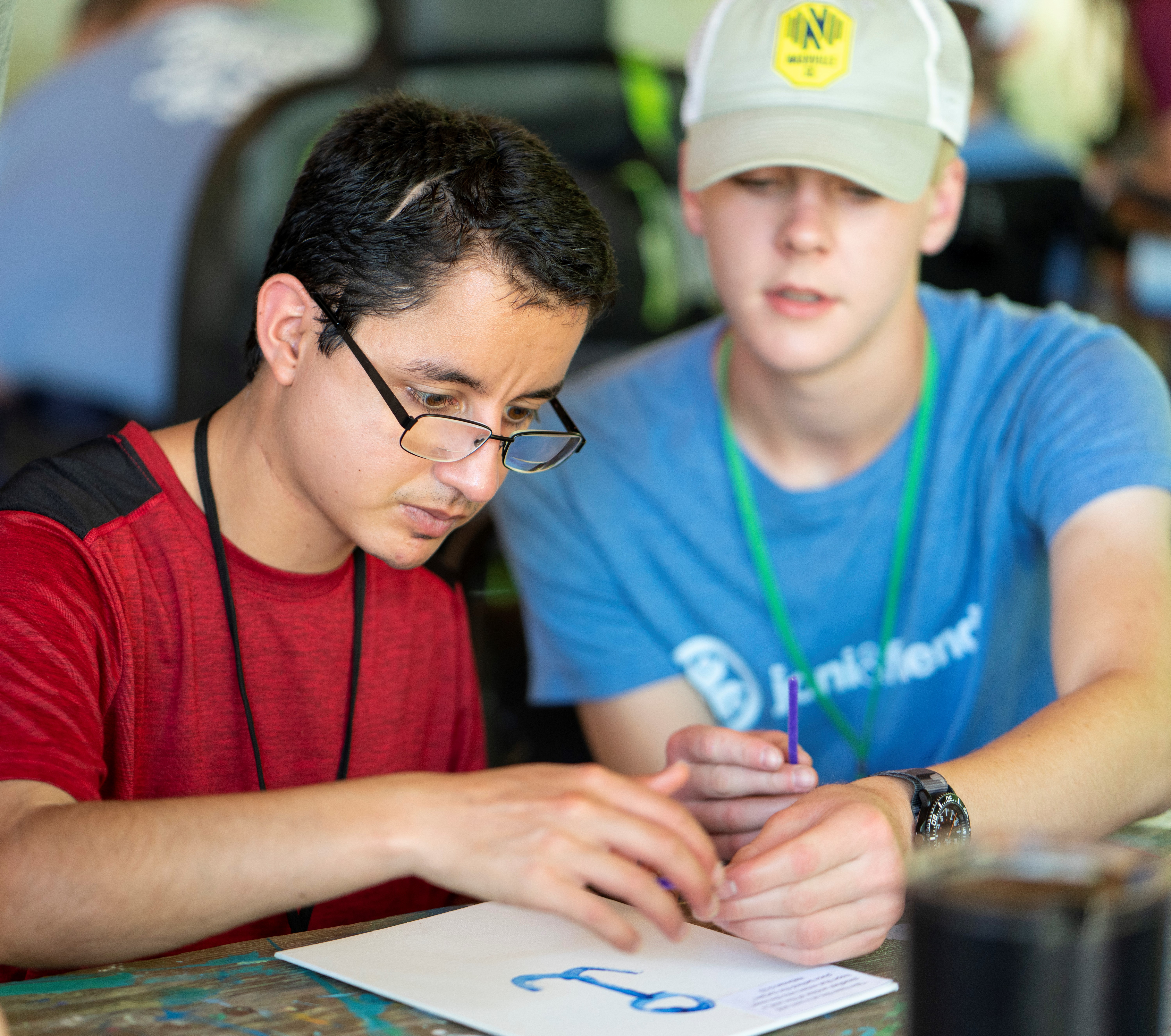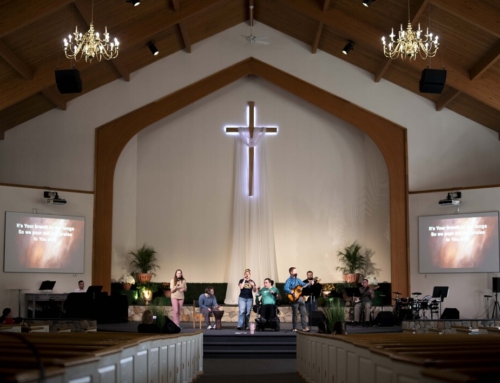How to Make Disciples of Those Living with Disabilities
What is a Disciple?
In first-century Judaism, a disciple was a student of a rabbi. The disciples went where the rabbi went, walked like the rabbi walked, and learned to speak and teach as the rabbi spoke and taught. Jesus called his earliest disciples to leave what they were doing and follow him.

For the duration of Jesus’ earthly ministry, his disciples traveled with him, sat under his teaching, and learned to do as he did.
Jesus says to his disciples in John 14:12 (NIV), “Very truly I tell you, whoever believes in me will do the works I have been doing, and they will do even greater things than these, because I am going to the Father.” And before returning to the Father, Jesus commissioned his disciples to “go and make disciples of all nations…” (Matthew 28:19, NIV).
There are a variety of ways discipleship may happen in your church. The purpose of this article is not to tell you how your church should make disciples. Instead, it’s meant to help you consider ways people with disabilities may encounter barriers to discipleship, and the steps to more effectively make disciples of those living with disabilities.
Differences in the Body of Christ
While we are all called to be like Christ, Jesus is not asking all Christians to be the same! We can celebrate what makes each of us a unique and essential part of the body of Christ.

“For just as the body is one and has many members, and all the members of the body, though many, are one body, so it is with Christ. For in one Spirit we were all baptized into one body—Jews or Greeks, slaves or free—and all were made to drink of one Spirit. For the body does not consist of one member but of many. If the foot should say, ‘Because I am not a hand, I do not belong to the body,’ that would not make it any less a part of the body” (1 Corinthians 12:12-15, NIV).
All disciples are “baptized into one body,” but not all disciples are identical. The church is designed to include members of all ethnicities, socio-economic strata, giftings, abilities, and disabilities.
People with disabilities—physical, developmental, and intellectual—are called into the same body of Christ as the most physically and intellectually gifted among us.

Someone without the use of their arms or legs can be called as a missionary to the farthest ends of the earth.
Someone with a speech impediment can be called to speak the words of God. Could someone who is blind be gifted to see the needs of their neighbors better than their friends with 20/20 vision? Of course!
Paul also uses this metaphor of the body in Romans 12:4-6:
“For just as each of us has one body with many members, and these members do not all have the same function, so in Christ we, though many, form one body, and each member belongs to all the others. We have different gifts, according to the grace given to each of us.” (Emphasis added)

If we believe that people with disabilities have been called by Christ to follow him, then our churches need to learn how to disciple them! To disciple those with disabilities we need to know them and believe they are in Christ.
And if they are in Christ, they have been given a spiritual gift for fulfilling the church’s mission.
Often, the greatest hurdle to people with disability being discipled is the false belief that they have nothing to contribute to the mission of the church. A person with an intellectual disability may, for example, come to church dutifully every Sunday, be known and liked by the congregation, and may enjoy their time greatly. At the same time, they may be entirely un-discipled.
Why is this?
It’s possible there is a misalignment of expectations. Ironically, both low expectations and high expectations can be hindrances to discipling someone with a disability.
Low expectations can allow someone to float along without ever being challenged to grow and use their God-given gifts.
Discipleship doesn’t happen by accident.
On the flipside, high, rigid expectations may put up artificial barriers that prevent someone with a disability from ever beginning their discipleship journey. Overly stringent requirements may put discipleship out of reach of someone with an intellectual disability or chronic illness.
Many churches operate with a tiny percentage of people doing the vast majority of work. But the church, when rightly understood, cannot operate at its full capacity without the proper functioning of each part. This is not a matter of “everyone pulling their weight,” or doing an equal share, but everyone operating “according to the grace given to each of us.”
Or, as Paul puts it in Ephesians 4:1-7 (NIV):
“As a prisoner for the Lord, then, I urge you to live a life worthy of the calling you have received. Be completely humble and gentle; be patient, bearing with one another in love. Make every effort to keep the unity of the Spirit through the bond of peace. There is one body and one Spirit, just as you were called to one hope when you were called; one Lord, one faith, one baptism; one God and Father of all, who is over all and through all and in all. But to each one of us grace has been given as Christ apportioned it.”
We are not all gifted in the same way, or in the same measure. But everyone in Christ has been entrusted with something. The “Parable of the Talents” in Matthew 25 indicates that the measure we are trusted with may grow in proportion to how well we use what we are given.
For this reason, we must take Paul’s call to the Thessalonians to heart and be sure to “warn those who are idle and disruptive, encourage the disheartened, help the weak, (and) be patient with everyone.”
1 Thessalonians 5:14, (NIV)
The Discipleship Process
What this looks like, in practice, will vary from church to church. But as you consider how to make your discipleship process accessible to people with disabilities, consider how your church accomplishes these three things.
1. Coming to Christ
Discipling people with disabilities means first sharing the good news of the gospel with them. This requires a church that is physically and socially accessible to people with disabilities.
A staircase is a physical barrier that keeps someone in a wheelchair from accessing the gospel. The assumption that someone with an intellectual disability “just doesn’t get anything out of the sermon” is a social barrier.
Making the gospel accessible to everyone is the first step to making disciples. Things like wheelchair accessibility, sign-language interpreters, and one-on-one buddies all assist with communicating the gospel.

“How then will they call on him in whom they have not believed? And how are they to believe in him of whom they have never heard? And how are they hear without someone preaching? … So faith comes from hearing, and hearing through the word of Christ.”
Romans 10:14, 17, (CSB)
Discipleship begins, of course, by coming to Christ!
2. Growing in Christ
When we receive Christ, we also receive the Holy Spirit. The Holy Spirit will convict us of sin (John 16:8), teach us (John 14:26), give us gifts for the sake of ministry (1 Corinthians 12:4-11), and unite us one to another (Ephesians 4:3-7). Discipleship includes the same elements for people with disabilities. So, we must consider what barriers keep people with disabilities from the discipleship process. If you can’t get to church (or the church won’t come to you), you can’t be discipled by that church.
If you can’t understand the gospel as it’s preached by the church, you can’t be discipled by that church. If you can get to church and understand the teaching but are surrounded by people who don’t believe that you have a vital, Spirit-filled role to play within the church, you will not be able to grow in service through that church. The church is God’s chosen vehicle for discipleship and has been tasked with making disciples, including disciples who are disabled!
3. Helping Share Christ with Others
Because disciples are called to a community of believers (the church), the gifts of the Spirit are discovered in the context of community. As believers with disabilities participate in community, their gifts will be discovered. A church that starts with the assumption that people with disabilities have spiritual gifts will be able to discover those gifts and help them find a suitable place of service.
Conclusion
Disciples make disciples! A church that disciples people with disabilities will also actively seek ways for those they disciple to disciple others, and discover their unique place in the body of Christ.

Connect with a Ministry Mentor
You can contact a Joni and Friends church training mentor directly at [email protected] or by calling (818) 707-5664. We’d love to walk with you as you seek God’s heart for people with disabilities in your church.
Adapting Church Curriculum
How do we ensure that everyone is able to learn from God’s Word? This video will give you eight simple tips that can help unlock the rich beauty and truth of Scripture for those with special needs in your church.





